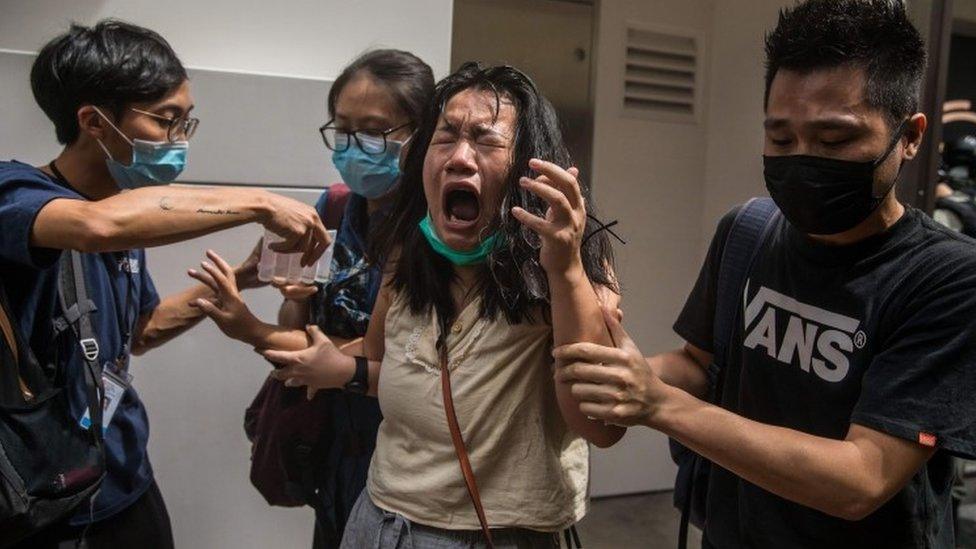Hong Kong: Opposition primaries draw thousands despite security law fears
- Published
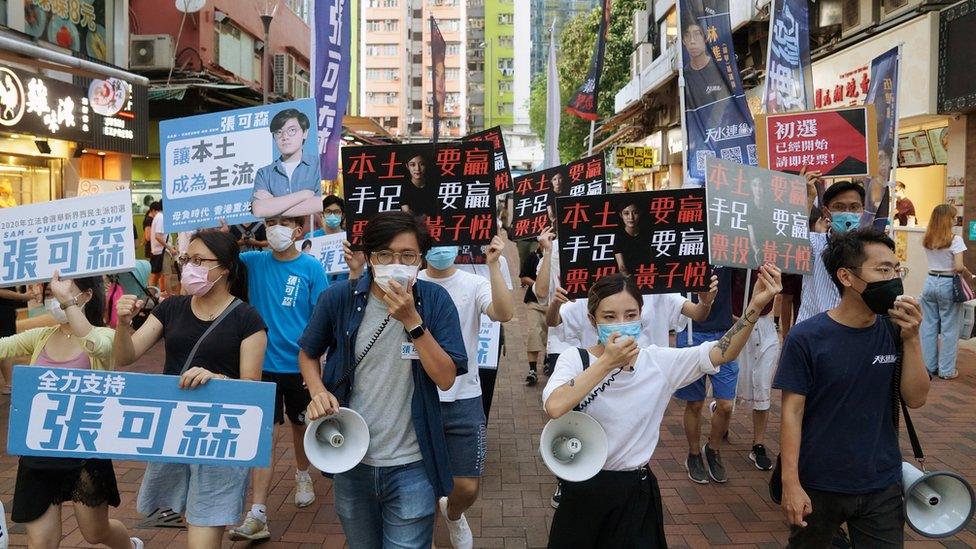
The vote will decide the opposition candidates for elections later this year
Hundreds of thousands of people in Hong Kong have voted in pro-democracy primaries, despite warnings that doing so may breach a new security law.
The two-day vote will determine the opposition candidates for September's elections to the legislative council.
But it is being widely viewed as a test of opposition to the controversial new law that took effect last month.
The law, which gives the Chinese state new powers over the city, drew widespread international condemnation.
China has said the law is necessary to prevent the type of protests seen in Hong Kong during much of 2019, but its critics say it severely curtails freedoms guaranteed to Hongkongers for 50 years after British rule ended in Hong Kong in 1997.
On Sunday, thousands of voters queued for a second day at more than 250 polling stations around the city. Opposition activists had hoped for a high turnout, and early estimates suggested that it had exceeded their expectations.
Organisers set a target of 170,000 voters across the weekend, but officials said more than 500,000 people had taken part as of Sunday afternoon.
The voters turned out despite one senior Chinese official suggesting last week that participation in the primary could breach the new security law.
"Those who have organised, planned or participated in the primary election should be wary and avoid carelessly violating the law," Erick Tsang, the Secretary for Mainland and Constitutional Affairs, told the Sing Tao Daily newspaper.
Hong Kong residents are worried the new law means the 'one country, two systems' principle no longer exists
Sunny Cheung, one of the candidates, told the Reuters news agency that a high turnout would "send a very strong signal to the international community, that we Hong Kongers never give up".
Eddie Chu, an opposition pro-democracy politician, called the vote a "proxy referendum against the national security law".
The full turnout is expected to be announced early on Monday, with results coming shortly after. But there are fears among opposition activists that the authorities will move to prevent some candidates from running in September.
"They can arrest or disqualify any candidate they don't like under the national security law without a proper reason," said Owen Chow, a young democratic candidate.

What is the new security law?
The new, wide ranging law:
Makes "inciting hatred" of China's central government and Hong Kong's regional government illegal
Allows for closed-door trials, wire-tapping of suspects and the potential for suspects to be tried on the mainland
Means a wide range of acts, including damaging public transport facilities, can be considered terrorism
Requires internet providers to hand over data if requested by police
Read more
- Published12 July 2020
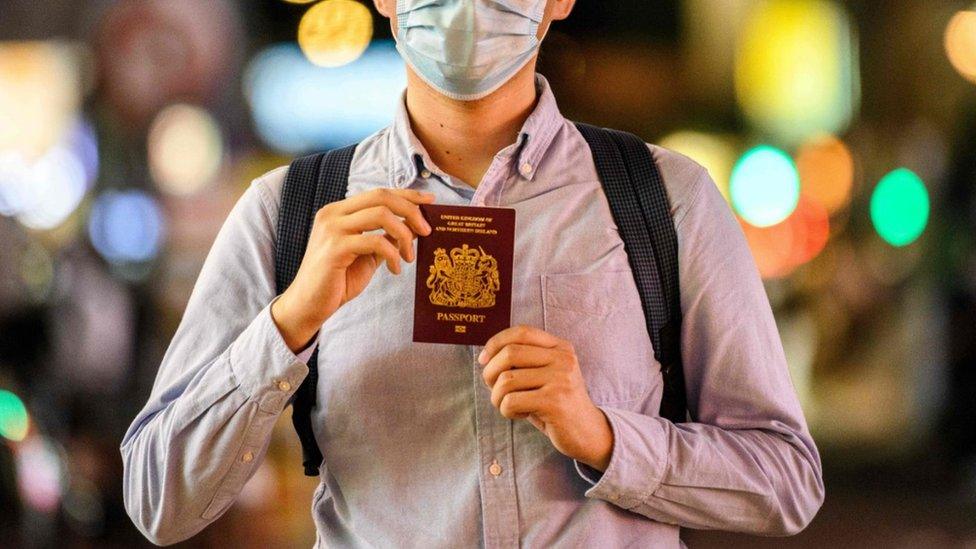
- Published8 July 2020
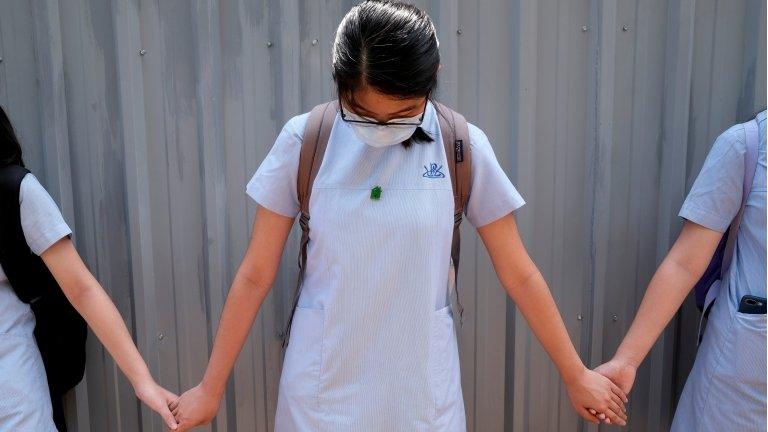
- Published7 July 2020
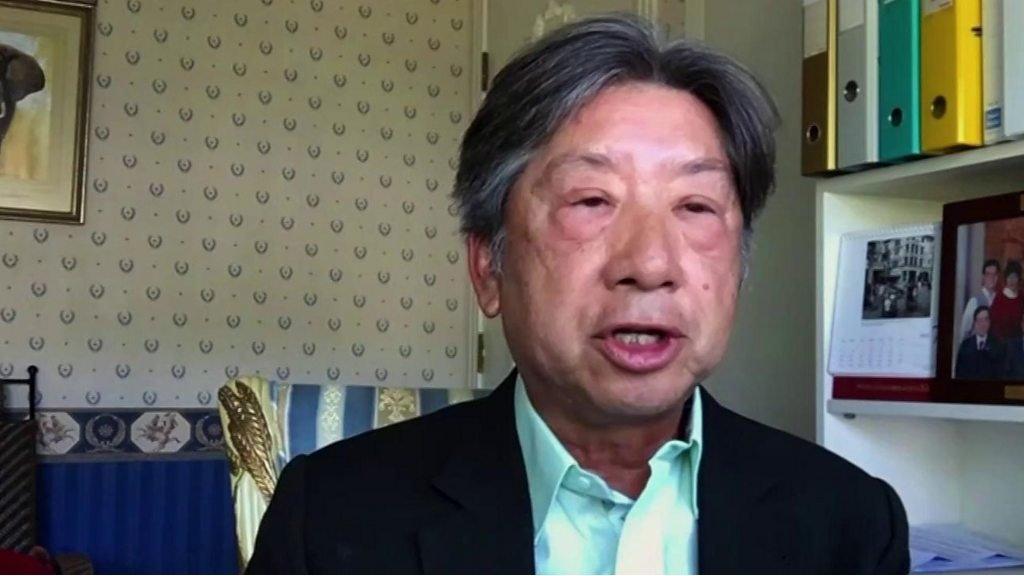
- Published3 July 2020
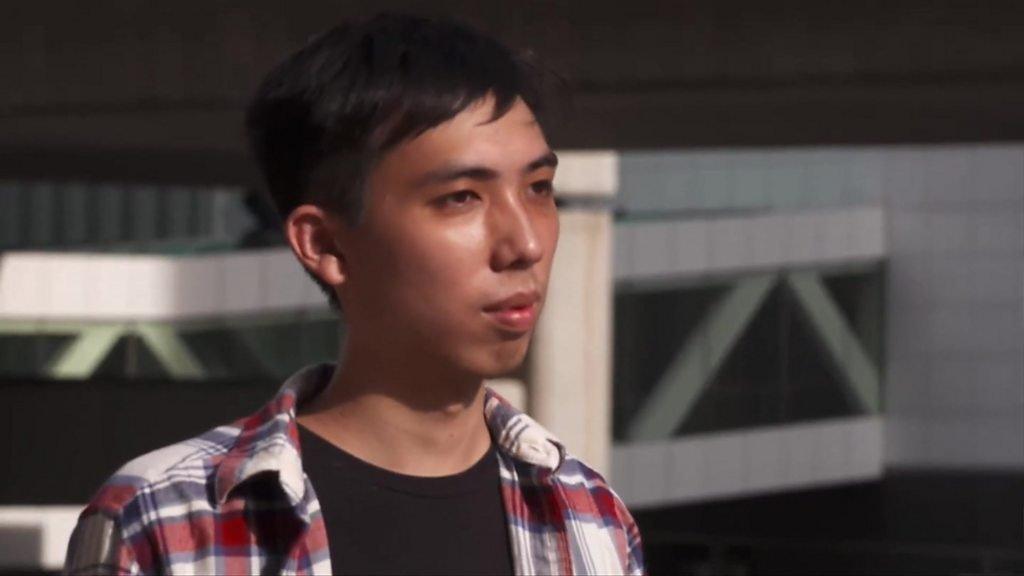
- Published2 July 2020
